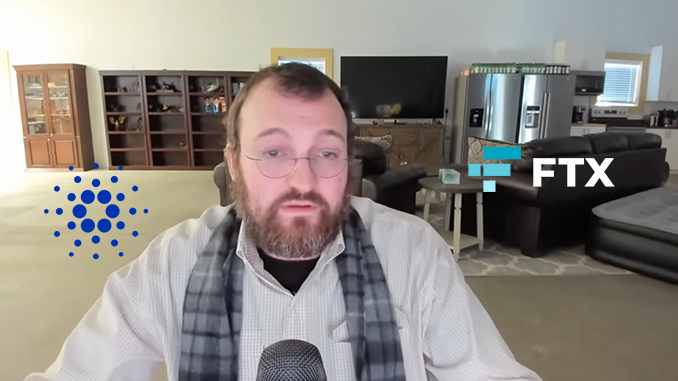
Charles Hoskinson, founder of Cardano (ADA), is convinced that the crypto industry needs more decentralization following the bankruptcy of crypto exchange FTX. This, he says, will reduce the risk of cases like FTX.
The crypto industry suffered two momentous crash moments in 2022: In May, the collapse of the Terra ecosystem (LUNA) along with the algorithmic stablecoin UST shocked the industry, and since mid-November, the bankruptcy of the crypto exchange FTX has caused losses in the billions. From these events, Cardano founder Charles Hoskinson draws a simple conclusion. The crypto industry needs to move away from centralized structures and strengthen true decentralization, Hoskinson said at a Financial Times conference this week.
“The failures (of FTX and LUNA) are not a failure of protocols, are not a failure of DeFi (Decentralized Finance),” says Hoskinson, who also made his name as co-founder of Ethereum (ETH). He understands people who like centrally organized offerings for Bitcoin and co. because they convey efficiency and consistency. But when it comes down to it, he says, human error or corruption can creep into such centralized projects and the financial consequences then hit investors, as with LUNA, or customers, as with FTX. Hoskinson says such dangers do not loom with decentralized protocols. Among crypto investors, for example, decentralized exchanges such as Uniswap are an alternative to centralized market leaders such as Binance.
In this context, Hoskinson naturally promoted Cardano (ADA). More than 3 million Cardano users and 1,200 projects based on ADA are proof of far advanced decentralization, he said. He himself started the party, Hoskinson said, but “good parties develop a life of their own even after the host.” At Cardano, the Voltaire development stage is being approached, which will introduce self-governance and curtail the influence of Hoskinson and crypto company Input Output on the ecosystem.
Conclusion: decentralization in the crypto industry a stretchy term
Hoskinson also points to Input Output-funded researchers at the University of Edinburgh who are developing an index of decentralization. Indicators such as token distribution, consensus building or dependence on centralized structures can be clearly examined, Hoskinson says, and one can then deduce which piece of the puzzle poses risks. In fact, projects such as Solana (SOL) or IOTA have only limited decentralization, even though they are publicly advertised as decentralized. In this respect, blanket statements such as those made by Hoskinson, who himself takes center stage at Cardano, should be taken with a grain of salt.

Leave a Reply